Zhabei Park, once known as Jiaoren Park
Welcome to Zhabei Park.
Zhabei Park is located at No. 1555 Gonghe New Road, covering an area of 13.35 hectares. It was completed and opened in 1946 and is the oldest park in Jing 'an District. The park was formerly a cemetery built in memory of the democratic revolutionary Song Jiaoren. It was often called Song Park and later renamed Jiaoren Park. On the eve of liberation, a group of revolutionaries were shot dead and buried alive here. After liberation, the Shanghai City People's Government renamed the park to Zhabei Park. The park has undergone many renovations and expansions. The Tomb of Song Jiaoren and Qian's Ancestral Hall in the park are both cultural relics protection units in Shanghai City. In 2018, the park underwent an overall renovation again. On the basis of retaining large trees, the park layout structure was adjusted and the characteristics of Chinese classical gardens were strengthened. Rebuild the west gate and build a new double maple and double courtyard to unify the architectural style of the park; reshape the landscape of the central lake area, purify water quality, increase water-facing space, and enrich plant characteristics; update service facilities such as amusement, fitness, and rest, and improve security, water supply and drainage, power supply, Emergency shelter and other infrastructure; highlight the park's historical heritage and create a high-quality comprehensive park with ecological, leisure, viewing and cultural functions. Zhabei Park is generally rectangular from west to east, with a natural layout. The western park is mainly dominated by the tomb of Song Jiaoren, and there is a sample tree square along one side of Gonghe New Road. The central park is the main scenic spot, with an area of more than 10,000 square meters. The water surface is wide and narrow, and the coastline is connected and tortuous. In the west of the lake, there are Shuangfeng and Shuangyuan and Waterfront Square; in the lake, there are three islands, namely, Jinyou, Cuiyou and Xige. The terrain on the island is changeable, the plant seasons are distinct, and pavilions are dotted among them. The land islands are connected by bridges, among which the Tianguang Bridge and Yunying Bridge are quite distinctive; the Qian Ancestral Temple in the east of the lake is surrounded by ginkgo, green maple and sycamore forests, complementing each other. The eastern park has Banmu Pond, children's playground, fitness trails and other attractions.
As a free downtown park, you cannot set too high demands on him.
I feel that the color matching of the door and the words in Zhabei Park is not very prominent. The name of the park does not highlight the biggest highlights of the park, the relationship with Song Jiaoren and the Qian Ancestral Hall.
Zhabei Park commemorates Song Jiaoren. Let's talk about this person first: When I was a student, this person's assassination was included in history textbooks. It is a history textbook published by the People's Education Commission. Things related to Song Jiaoren are the largest IP in this park.
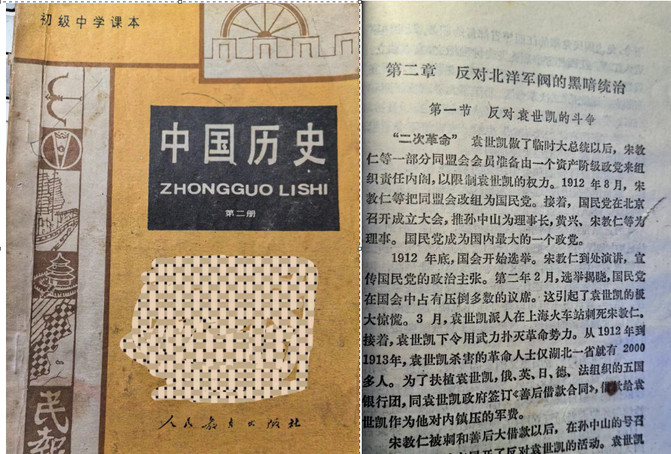
The construction of Song Jiaoren's Tomb started in Zhabei Park
Song Jiaoren (1882--1913) was a native of Taoyuan, Hunan Province. He was also known as Fisherman. He was a modern democratic revolutionary and an early leader of the Kuomintang. In his early years, he actively participated in bourgeois revolutionary activities.
After Yuan Shikai won the presidency, Song Jiaoren formed the Kuomintang based on the Alliance and served as acting chairman. He prepared to use parliamentary politics and political party cabinet as weapons to restrict Yuan Shikai's regime in accordance with the "Provisional Constitution." He also delivered campaign speeches in Changsha, Shanghai and other places, promoting the responsible cabinet system and political party politics, and advocating the formulation of a democratic constitution. Finally, in the February 1913 congressional election, the Kuomintang won an overwhelming majority of seats in the House and Senate and became the largest party.
In the 1913 parliamentary election of the Republic of China, the Kuomintang won a complete victory. Song Jiaoren was about to follow the European practice of "cabinet system" and form a cabinet as the party leader. On the evening of March 20, Song Jiaoren was shot dead at the Shanghai Railway Station. The identity of the assassin Samurai Ying and the buyer Ying Guixin (born in the Qing Gang and appointed by Yuan Shikai to the post of Jiangsu Inspector General in Shanghai) was quickly exposed. However, for more than a century, there have been different opinions about the mastermind behind the scenes. Yuan Shikai, Zhao Bingjun, Hong Shuzu and even Sun Yat-sen, Huang Xing, and Chen Qimei were all suspected. After being stabbed, Song Jiaoren was in unbearable pain. He lay down on a chair, pulled Yu Youren's head to his chest with his hand, and said breathlessly: "I am in so much pain that I can't afford it..." Huang Xing, Yu Youren, Liao Zhongkai and others, who were seeing off at the train station, sent Song Jiaoren to Shanghai-Nanjing Railway Hospital for emergency treatment. In the hospital, he left a will to Yu Youren:
Here are three things to tell you: First, all books deposited in Nanjing, Beijing and Tokyo will be donated to the Nanjing Library; second, I am originally from a cold home, and my mother is still alive. If I die, please Ke Qiang, you and all my old friends will take care of me; third, all of you should work hard to do it, and don't think of me and give up your sense of responsibility. I have worked hard to reconcile the affairs between the north and the south. The rumor-makers and the people don't know the whole story. Every time I misunderstand it, I deserve to suffer, but how can I regret it if I die?
He also instructed Huang Xingdai to prepare a telegram to Yuan Shikai,
Beijing President Yuan Da's lesson: Ren took the Shanghai-Nanjing bus to Beijing this night to pay homage to the Jun seat. At 10:45 at the station, he was suddenly shot from behind by a traitor, from the upper waist to the lower abdomen, and he was bound to die. Since he was taught, Qian Siren has been confined to himself. Although he has been widowed and has not been able to gain anything, he has never had a grudge against anyone. When the government is not clean, the government is responsible for reform. It also values humanity and obeys justice, and dares not to have any power. Now that the foundation of the country has not yet been established and the welfare of the people has not increased, I will die with regret. The President of Fuji was sincere and fair, and tried his best to protect civil rights; so that the country could obtain a constitution that would not be removed, so that even though he died, he would still live. When he died, he prayed to be accepted. Song Jiaoren.哿
(jiā represents the telegram sent on the 20th. At that time, the telegram cost was expensive, and no more word could be used to express the meaning. The quotation is as follows: In the late Qing Dynasty, the cost of each telegram in the Chinese telegraph room was calculated according to seven words. Fees within seven words are charged according to seven words, and additional accounts are settled outside seven words. Often one word is worth two pieces of silver. It is mentioned in the book that Guo Songtao, Minister to Britain and France, wrote a memorial to Emperor Guangxu and reported to Liu Xihong, Minister to Germany, for "abusing funds" and "squandering huge sums." Guangxu sent someone to verify that Liu Xihong's embassy in Germany had sent seven or eight irrelevant telegrams within four months, and then dismissed him. The high cost of telegrams can be seen. The imperial examination was abolished in 1904, and gradually scholars became unfamiliar with the rhyme department. However, even though telegraph charges later fell, this habit of replacing the day with rhyme was continued to the early days of the founding of the Republic and was used for about 70 years.)
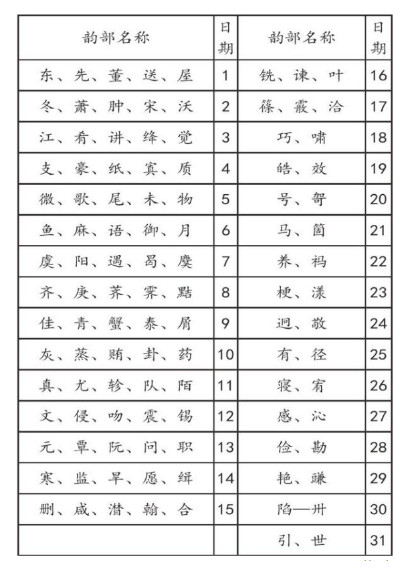
After the operation, his condition did not improve, and there was serious bleeding in the urine and feces. On the afternoon of the 21st, Song Jiaoren was sent to the operating room again and died at 4:48 a.m. on the 22nd. He was only 31 years old. After his death, Fan Hongxian took photos of Song Jiaoren's body. The tomb of Song Jiaoren is now housed in Zhabei Park in Shanghai City.
After Song Jiaoren died, Fan Hongxian took photos of Song Jiaoren's body. First, a semi-naked body photo was taken, and the wound was displayed in front of the camera. Another photo of the body covered in a leather suit was taken, and the body was placed on a high sofa. The tomb of Jiaoren in the Song Dynasty is housed in Zhabei Park in Shanghai City. The murderer who assassinated Song Jiaoren is still a mystery.
Yuan Shikai learned of the assassination of Song Jiaoren on the 21st and expressed his surprise... Yuan Shikai immediately sent a telegram: "Message from Mr. Song Dunchu in Shanghai: Reading the Reuters telegram, I was shocked to hear that the deacon was injured by a mob. I am deeply shocked. Only after receiving jiā electricity can you get the details. In the construction of the Republic of China, talents were extremely difficult, and officials were knowledgeable and respected in the world. Everyone who had a little knowledge was taken care of. How can it be said that in a place where there were ferocious people who dared to assassinate people? People's hearts were sinister, and where did the law and discipline exist? I just pray that heaven and earth will be blessed and the governance will be restored. Fortunately, we will not make words of decline and be pessimistic. In addition to sending a telegram to the Jiangsu Governor, Civil Affairs Minister, Shanghai Negotiation Envoy, County Governor, and Shanghai-Nanjing Railway General Office, and placing heavy rewards and seizing the culprits within a time limit, we will first express our condolences."
When the situation is unclear, these words should first express an attitude, and all routines must be done well.
Sun Yat-sen was in Japan when Song Jiaoren was assassinated. He immediately called the Kuomintang headquarters in Beijing and the Ministry of Transportation in Shanghai from Nagasaki, asking the revolutionaries to make every effort to find out the reason for Song's murder. On March 25, Sun Yat-sen returned to Shanghai from Japan. That night, he discussed ways to deal with the Song case at Huang Xing's residence. Chen Qimei, Ju Zheng, Dai Tianchou and others were present. At that time, Ying Kuicheng and Samurai Ying had been captured. Sun Yat-sen was completely disillusioned with Yuan and advocated quick war. Huang Xing believed that since the Republic of China had been established, the laws were not ineffective, and that "the south's military force was not enough. If it were to launch an attack, the overall situation would be ruined"(The Complete Works of Sun Yat-sen, Volume 3, p. 165). For this reason, Sun and Huang argued fiercely. In April, Yuan Shikai signed a loan for the aftermath, preparing to launch a civil war and eliminate the southern forces. In July, Li Liejun officially declared Jiangxi's independence and telegraphed to attack Yuan. The Southern Revolutionary Party responded one after another and launched a war with the Beiyang Army; in September, Nanjing fell, the "Second Revolution" failed, and Sun Yat-sen and Huang Xing fled to Japan.
There is an online video narration of Song Jiaoren. You can refer to:
During the Republic of China, Song Jiaoren was handsome, heroic, and eloquent. He had extraordinary talents, far-reaching horizons, and had no selfish desires. He only wanted to create a republic and enter a civilized and prosperous country. When he wanted to show his skills, he was assassinated. This was the most heartbreaking thing in modern Chinese history. In the next hundred years, where could a person like the Song Fisherman be found again?
On April 1, 1913, Shanghai's "Minli Daily" published Tan Renfeng's "Talk on the Tomb of Song Jiaoren after his Death". There was a passage in it: Song Jun was a great man of the Republic of China, and he was not his personal gain from Hunan Province. Therefore, some people now advocate burying the remains of King Song in Lushan, but I disagree. Why not raise funds in Shanghai to build a new open land, build a park first, and bury King Song there? As the tomb of my country's Democratic Party members.
After Song Jiaoren was killed in Shanghai, Yuan Shikai first complied with the petition of Feng Ziyou, director of the Kuomintang Interim Honors Inspection Bureau, and personally instructed him to grant preferential compensation and submit his life's merits to the National History Museum for biographies. It is still up to the bureau to find out how many sons the late chief executive has and send them to study abroad to help them cultivate them. Next, Yuan Shikai, at the request of Tan Renfeng, Song Jiaoren's predecessor, allocated an additional 100,000 yuan in funeral expenses to build Song Jiaoren Cemetery.

Current cemetery:
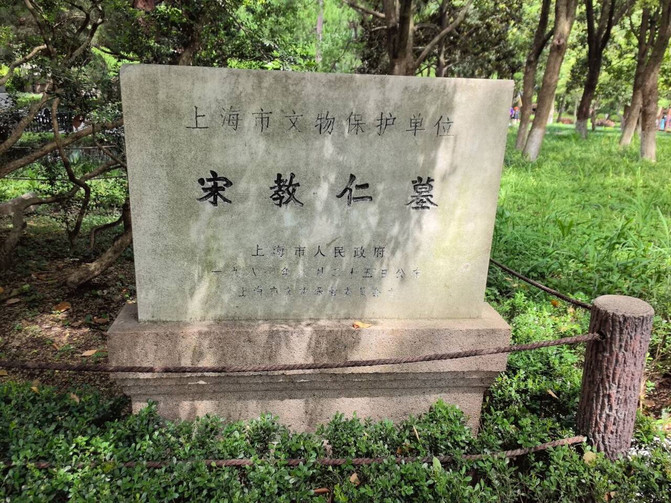
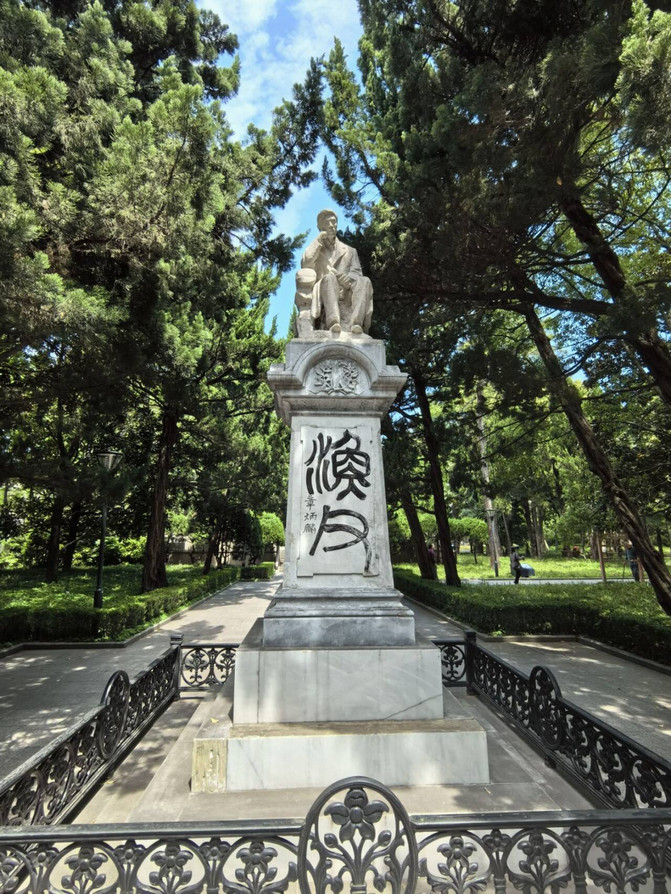
There are two big characters in front of the tomb: Fisherman. It was written by Zhang Binglin. Zhang Binglin is also known as Zhang Taiyan. Tell me something about him:
Zhang Taiyan was once sentenced to three years in prison in the Shanghai Concession for reporting the case by Su. Zou Rong (the one who wrote "Revolutionary Army") was imprisoned for two years and was sentenced to hard labor in prison. After the end of his imprisonment, he was "expelled from the Concession." It is said that although Zhang Taiyan and Zou Rong escaped the death penalty, they could not escape the harm in prison. After being imprisoned, Zhang Taiyan was slow at work due to myopia. He was often beaten by jailers and almost died several times. Zhang Taiyan and Zou Rong wrote poems to express their aspirations in prison and encouraged each other. Unexpectedly, the originally frail Zou Rong died of illness in prison after being brutally tortured. He was only 21 years old. After Zou Rong's death, revolutionaries in Shanghai held a memorial meeting for him to denounce the crimes of the concession authorities and the Qing government. The concession authorities flaunted humanitarianism and feared that Zhang Taiyan would also die in prison, so they assigned Zhang Taiyan to do light manual work, specializing in the "beautiful job" of cooking. Later, Zhang Taiyan lamented: "Yu's life was due to the death of Wei (Zou Rong also known as Wei Dan)."
Back of the statue:
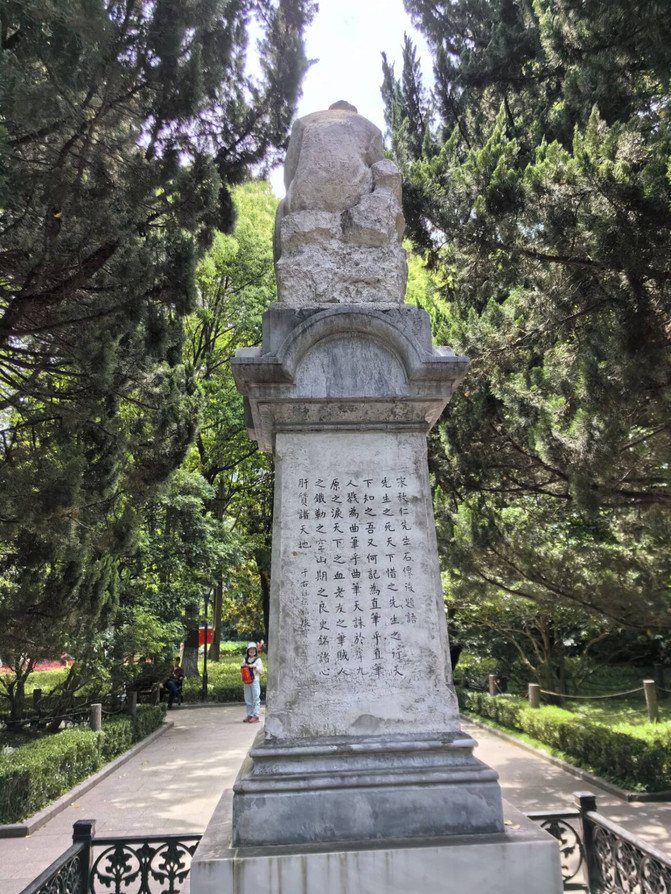
On September 23, 1916, Shanghai's "Republic of China Daily" published Tan Renfeng's "The Origin and Opening of Song Garden", which introduced that after the death of Song Jiaoren in 1913, he petitioned the government to allocate 100,000 yuan. At first, he purchased 40 acres of land in Xujiahui. People thought that this place was too narrow and difficult to expand and far away from the railway station where Song Jiaoren was killed, so they purchased another 103 acres of land at Xiangyi Port, Baoshan County, ten miles away from the concession, and entrusted Wang Yiting, Long Zixiu is responsible for project construction. (Now in Zhabei Park, No. 1555 Gonghe New Road, Jing 'an District), more than 10 acres of land have been allocated to build a cemetery. The cemetery covers an area of 0.6 hectares and was completed in June 1914. The cemetery is approximately square in shape, with 24 round-headed square pillars built around it, connected to a stone fence. The tomb bed faces north to south and is in the shape of a cylinder and a semi-dome. A tombstone stands in front of the tomb, including the "Tomb of Mr. Song Jiaoren". The tomb roof is sculpted with an eagle with an evil snake on its feet, symbolizing the Song family's spirit of fighting tenaciously with feudal forces.
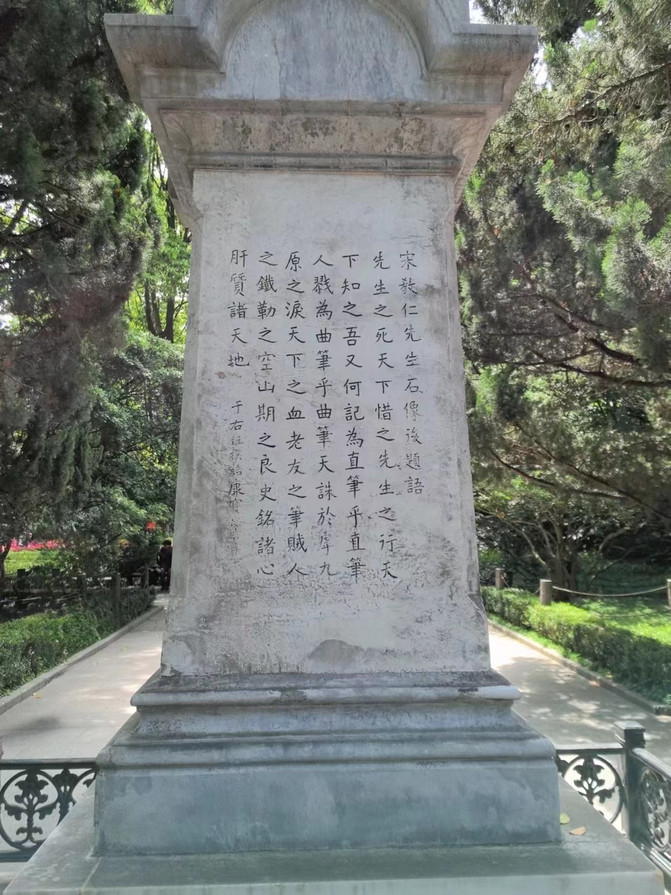
In the middle of the south corner of the cemetery, there are two stone pillars erected on the left and right sides as entrances and exits, with 8 steps for visitors to climb up. At the top of the stone pillar in the middle of the tomb area stands a sitting statue of the Song family in a full-body suit, carved in marble. The word "Fisherman" is engraved on the front of the base of the sitting statue, which is the script of Zhang Taiyan's seal characters. The inscription written by Ren on the right is engraved on the back of the base: "The world cherishes the death of Sir, and the world knows the actions of Sir." How can I remember it! Is it a straightforward writing? A straight pen kills a person; it's a curved pen, and a curved pen punishes heaven. Whoo-hoo! The tears of Jiuyuan are the blood of the world, the pen of old friends, and the iron of thieves; the lull is the empty mountain, and the good history of the future, engraved in the heart and soul, and shaped in the heaven and earth!" Yu Youren wrote the words Kang Baozhong wrote in the book.
Online translation:
The whole world regrets the death of Mr. Wang. Everyone in the world knows about your behavior. How can I record it? How about it? Someone will kill me. Why don't you twist the truth and write it? This way, even the sky wants to kill me. Ah! Your tears under the nine springs, the blood shed by people in the world, and the epitaph I wrote will all become ironclad evidence of the thief of the country. You were buried in that mountain, looking forward to a good historical book, engraved historical facts in everyone's hearts, and perpetuated the evidence in heaven and earth.
The original calligraphy of Yu Youren is available online.
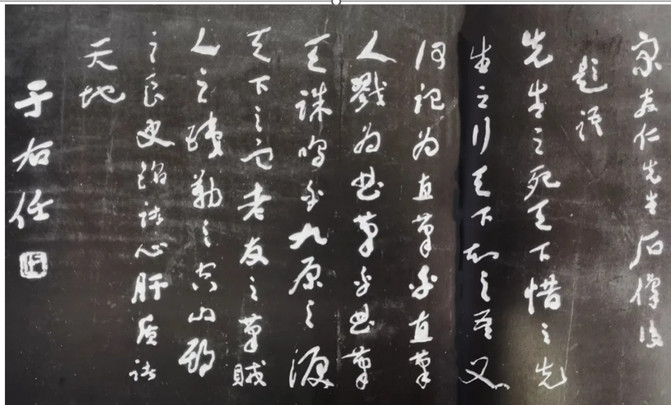
Panorama of Song Jiaoren's Tomb
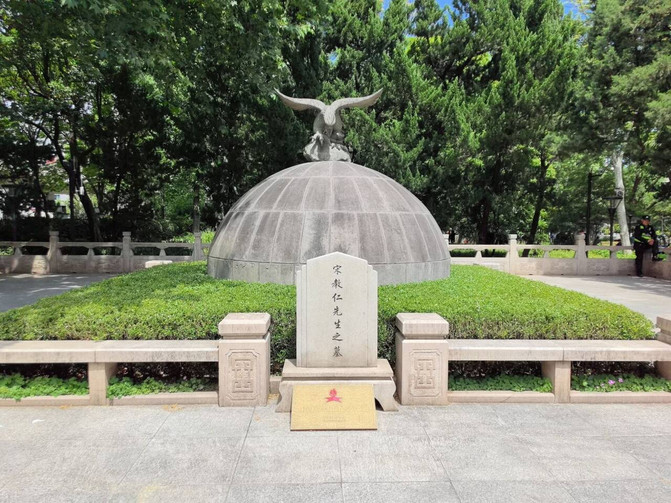
Close-up of the statue on the tomb
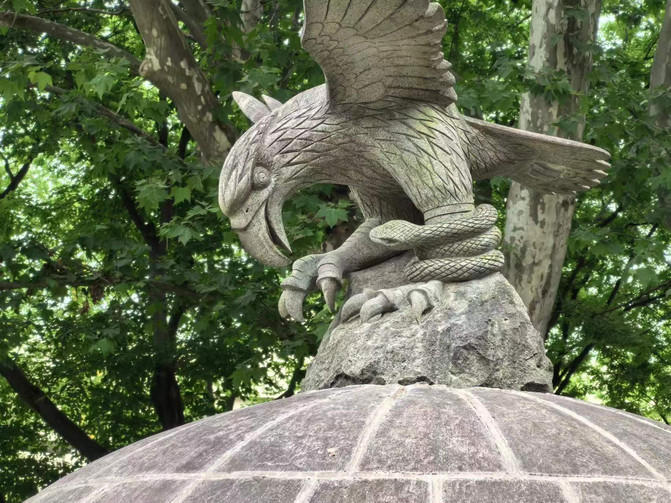
There is a pavilion not far away: Gonghe Pavilion
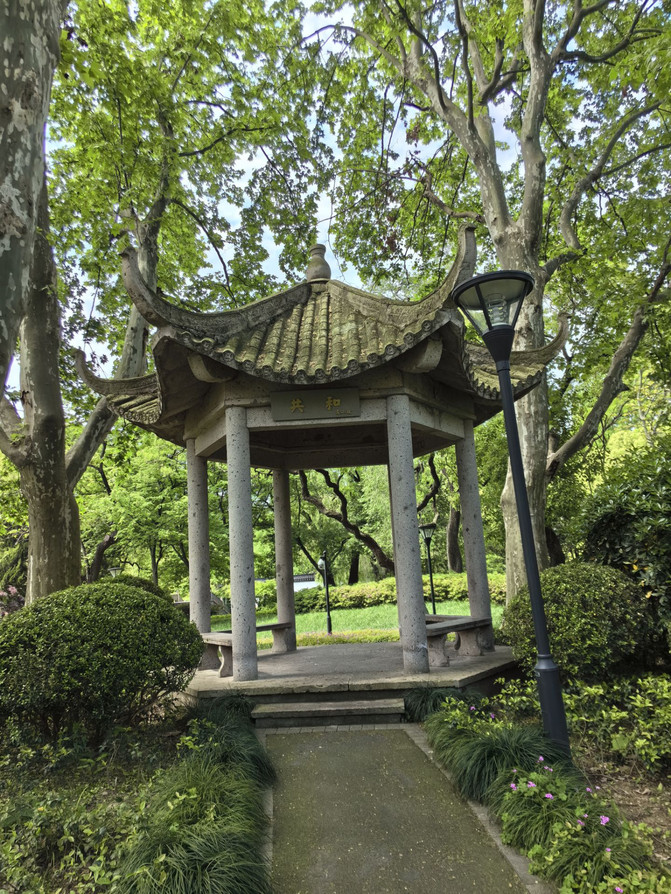
Although Zhabei Park started from Jiaoren Park, the park seems reluctant to promote this matter. There are two Shanghai cultural relics protection units in the entire park. I only saw one sign at the tomb of Song Jiaoren, which is compared to the other cultural relics sign in the park. There are more signs: Qian's Ancestral Hall. But unfortunately, I have visited many times, but this ancestral hall has never been opened. You can only see one appearance.
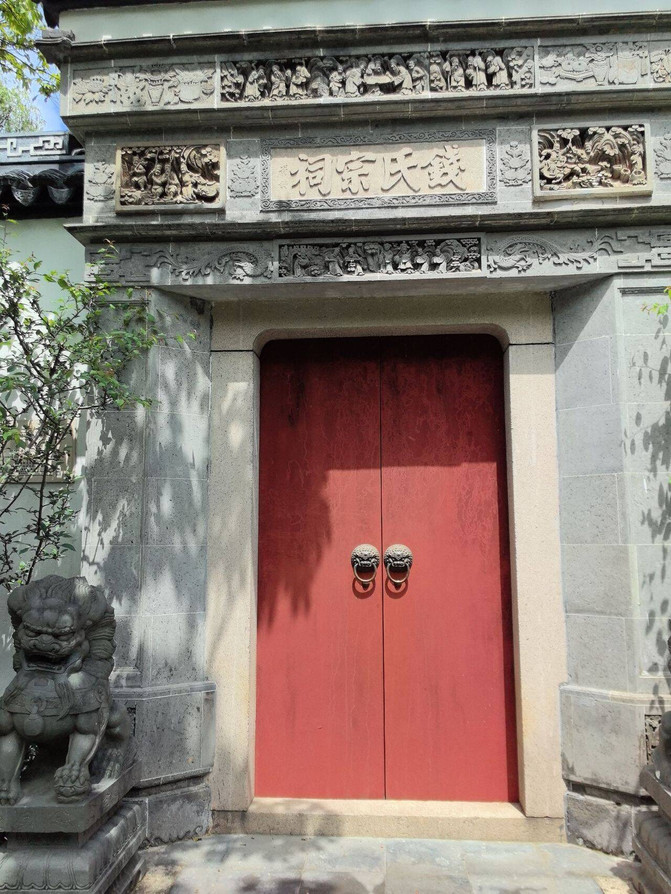
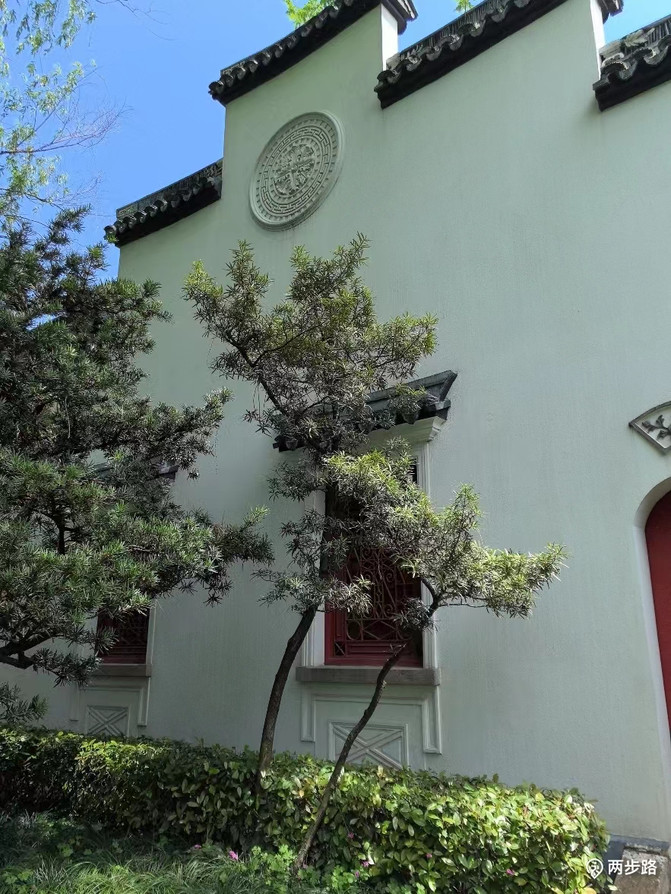
After all, this park is quite old. The area of the urban park cannot be too large. There are many people in the park. The delicacy of Shanghai people is also reflected in this park. Get some photos and show you the panoramic view:
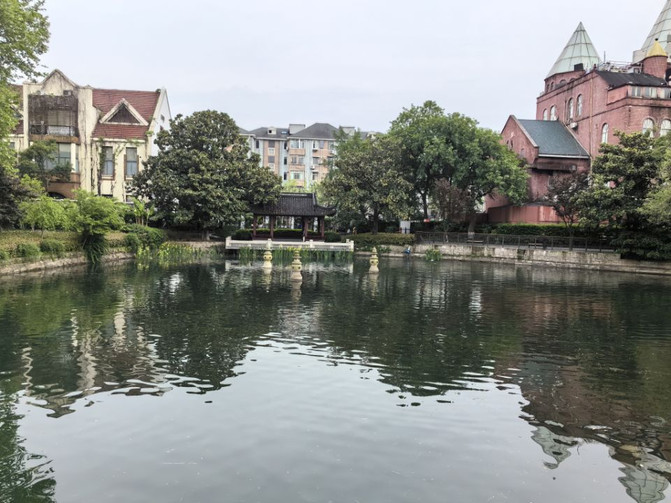
Similar to three ponds reflecting the moon
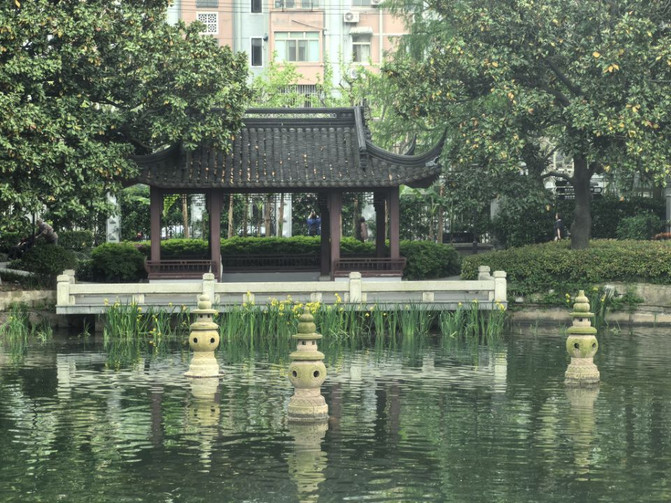
Some scenery is very beautiful and there are many tourists, so I can't take good photos. I regret it.
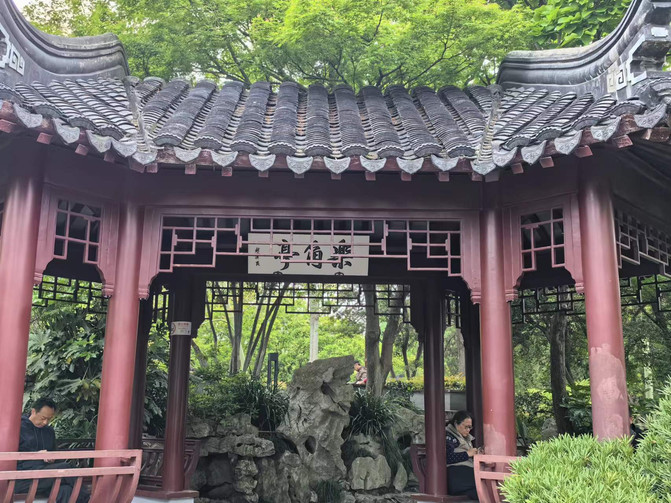
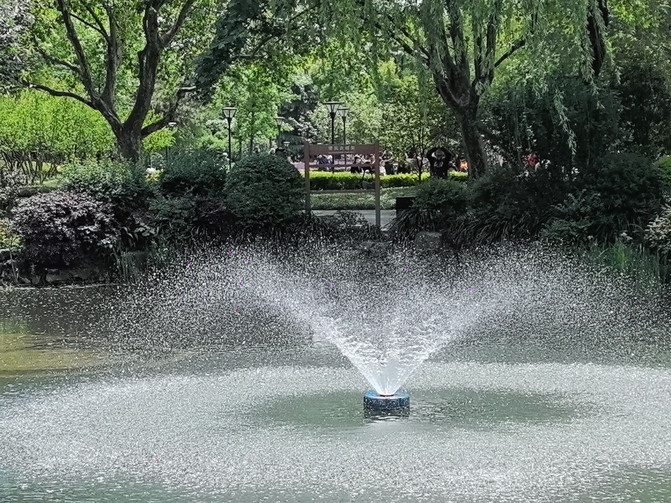
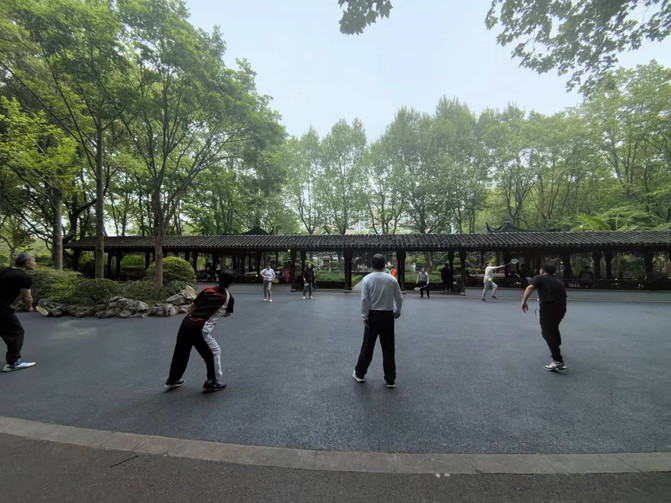
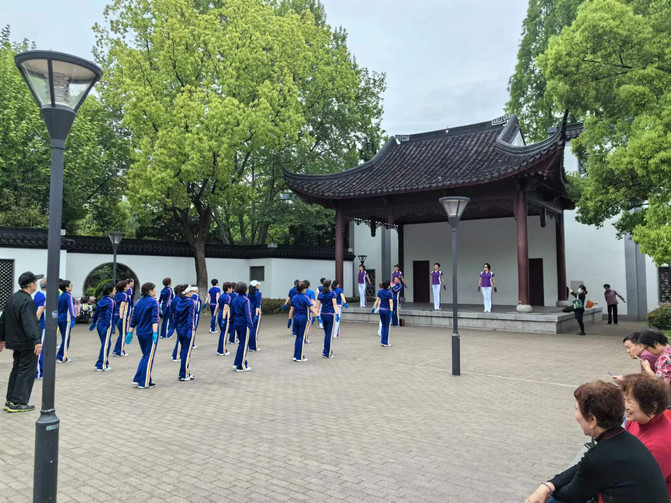
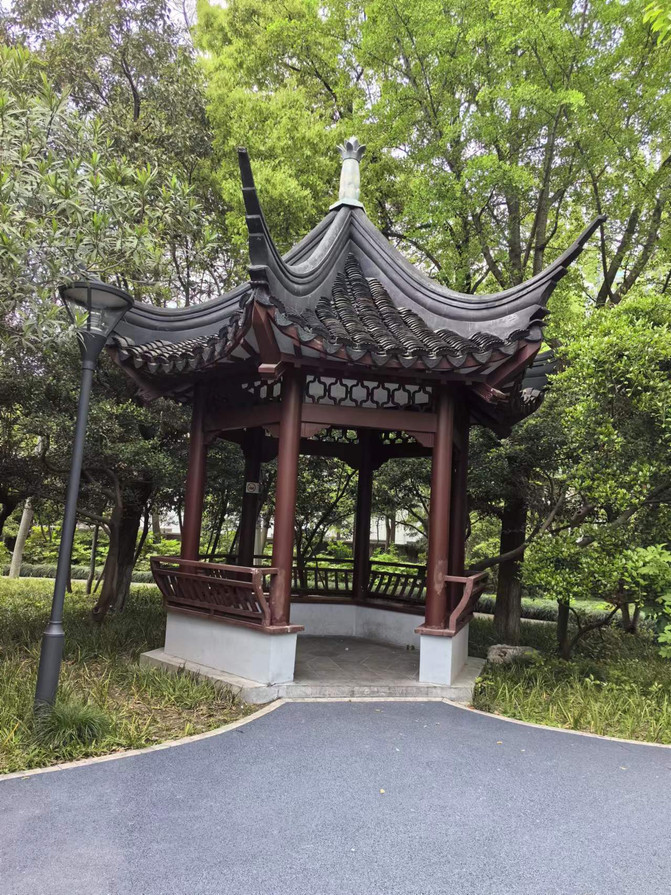
Zhabei Park I walked through.
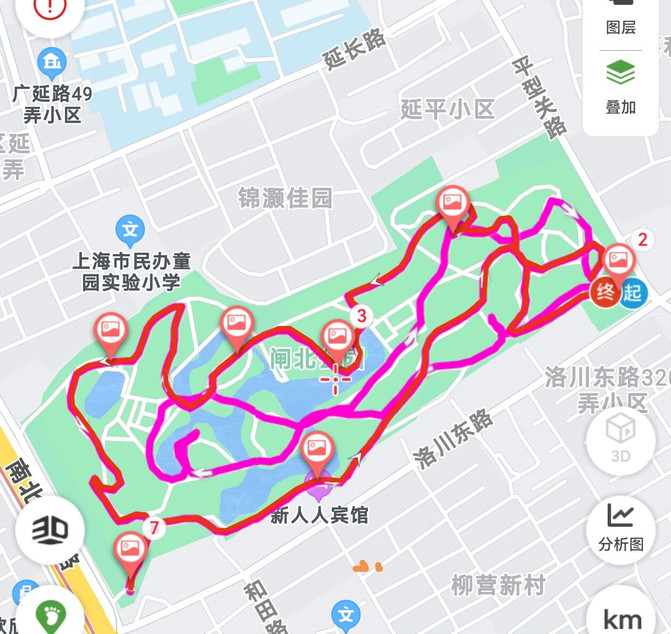
Previous Article:Traveling to Shanghai this summer vacation, I went here to get in close contact with mermaids, and locals also went there
